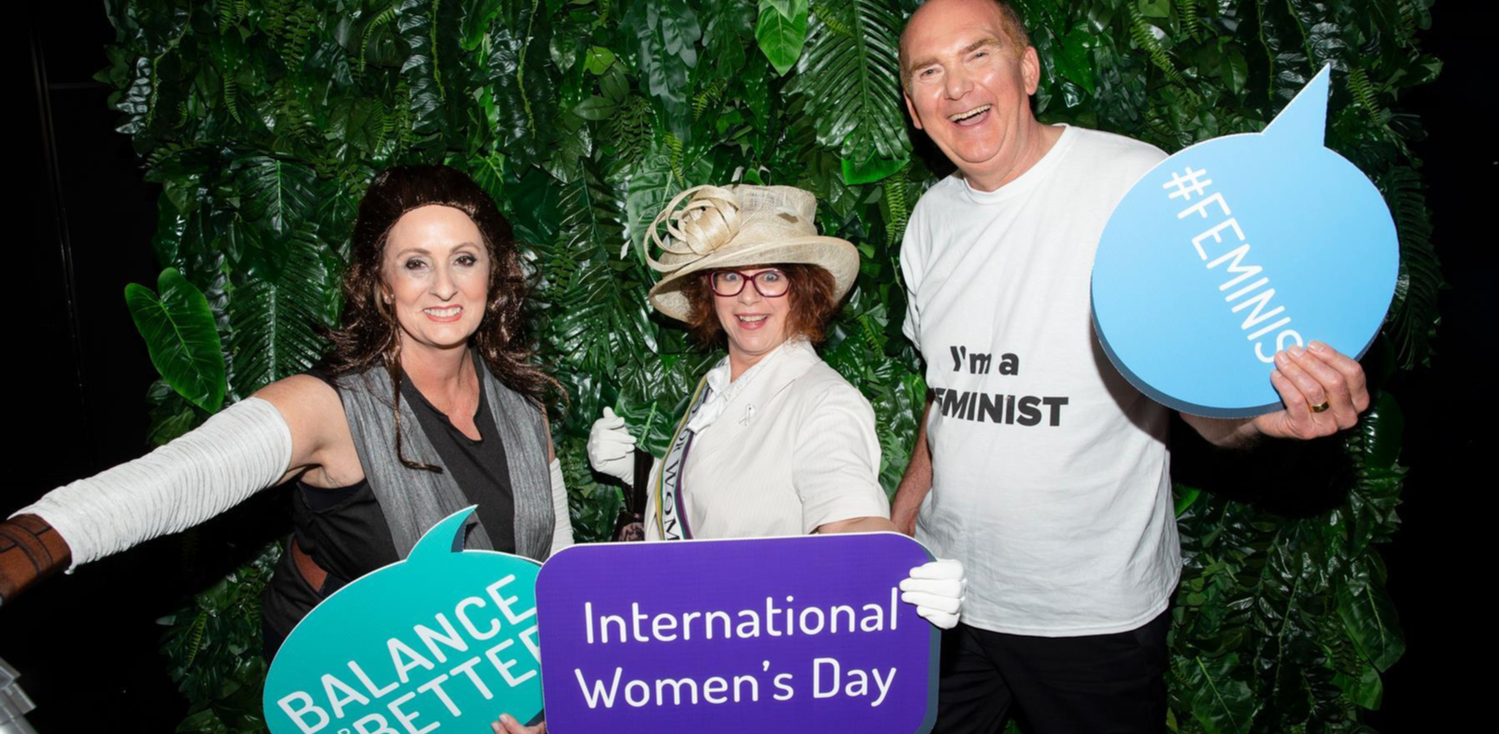By Bernadette Uzelac FIML
Last week I participated in IML ANZ’s Great Debate in Melbourne – one of many events held throughout Australia to mark International Women’s Day. The topic was “Her aspiration needs his cooperation.” I was on the affirmative team and our underlying position was that we need all people on the journey if we are to achieve equality.
Cooperation, not permission
But ‘cooperation’ doesn’t mean women need the ‘permission’ of men to be successful. Rather, our team’s message was that we need to empower, educate and support men and boys to become agents of change. To challenge gender stereotypes and societal norms that typecast people from a very young age to conform to roles and behaviours that ultimately set the scene for gender bias and discrimination – counter to the notion of equality.
Initiatives like Male Agents for Change and White Ribbon are great examples of men driving positive change and being part of the solution. The United Nations and the European Institute for Gender Equality both support and recommend education and awareness programs for men and boys to combat stereotypic attitudes relating to women’s and men’s roles and responsibilities within the family and society at large. They also agree that we can only succeed in achieving equality through the participation of both women and men.
There’s no ‘merit-based’ silver bullet
A central ideology in the conversation is around the issue of merit-based recruitment and career advancement. The proposition that decisions should be based on merit and the best person for the job, regardless of gender and other perceived barriers, sounds fair and reasonable. Indeed, many fair-minded people have pushed for merit-based approaches for decades as a means to counter nepotism, prejudice and bias. Surely, if all organisations based their decisions on merit alone, then barriers based around gender and other biases will simply cease to exist? On the surface, the merit concept seems to be a far more equitable philosophy.
The facts, however, tell a different story.
Meritocracy has not proven to be successful in creating a diverse and culturally rich workforce. Women hold less than 30% of company directorships and a staggering 35% of boards and governing bodies have no female directors. In Australia today the C-Suite is a very male dominated environment. A mere 17.1% of CEOs are female and only around 30% of key management positions are held by women. Full time average weekly earnings of women are 14.1% less than men, and women retire with around 42% less superannuation than men.
Why meritocracy can’t stand alone
The reason that merit-based approaches haven’t worked is because underlying barriers like bias, prejudice and discrimination still exist – they’re just not necessarily talked about openly. If you’re not from the right socio-economic background, race, religion, gender, sexual orientation, age group, you have disability or have needs that challenge an organisation’s cultural ‘fit’ you may struggle. And whilst merit-based appointments continue to equate merit with experience, the end goal of achieving gender balance and diversity will remain elusive. People who are capable to do the job, but who may not have the preferred experience, may not always get to first base to even be considered due to barriers such as disadvantage or unconscious bias and prejudice.
The notion of the ‘best person for the job’ will continue to be a myth whilst we have highly capable people on the margin who may not have had the same opportunity, luck or favourable networks of support as others may have had. Consideration needs to be given to building more equity into the process and encouraging greater self-awareness of deep-seated personal biases and prejudices that may be unconsciously influencing decision making.
Education, awareness and support
A local expert in diversity and inclusion recently said, “Change is grounded in education and awareness. The issues of equality between genders are deep and complex. We don’t know what we don’t know… it doesn’t matter which gender you are. We need to encourage curiosity so that people… seek further understanding, increasing awareness so that we know why we need to continue to drive change!”
Women are successfully raising the bar and driving change, however, change won’t come quick enough unless everyone is on board and actively contributing. Whilst there is a strong argument for quotas in some circumstances to fast track change and bring greater balance to workplaces, we do still have a long way to go. When the term ‘gender equality’ is no longer a part of our daily lexicon we will know that we have arrived. The force for change is in us all.
Bernadette Uzelac is a former CEO, is a fellow of IML ANZ, company director and small business advocate. Follow her on twitter @Bern_Uzelac



